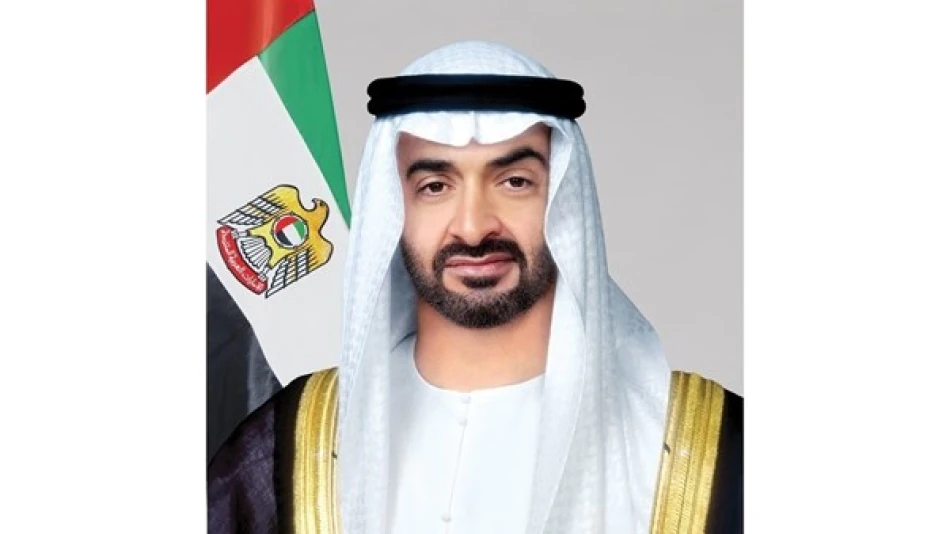
UAE President Embarks on Official Visit to Russia, Strengthening Bilateral Ties
UAE President's Moscow Visit Signals Deepening Gulf-Russia Economic Alliance Amid Global Realignment
UAE President Sheikh Mohammed bin Zayed Al Nahyan begins an official visit to Russia on Thursday, August 7, marking another milestone in the Gulf state's strategic pivot toward diversified global partnerships. The high-stakes meeting with President Vladimir Putin will focus on expanding economic, trade, investment, and energy cooperation—sectors that have become increasingly vital as both nations navigate Western sanctions and shifting geopolitical landscapes.
Strategic Partnership Beyond Oil Diplomacy
The UAE-Russia relationship has evolved far beyond traditional energy cooperation, reflecting Abu Dhabi's broader strategy of maintaining balanced ties with major powers while maximizing economic opportunities. This visit comes at a crucial time when both nations are seeking alternative economic partnerships amid Western pressure on Russia and the UAE's ambitions to become a global financial hub.
The timing is particularly significant as Russia continues to face international sanctions over its actions in Ukraine, while the UAE has carefully maintained its neutral stance, refusing to align with Western sanctions regimes. This positioning has allowed the Emirates to serve as a crucial financial bridge for Russian businesses and investors.
Energy and Investment: The Core of Cooperation
Beyond Traditional Oil Partnerships
While both nations are major energy producers, their cooperation extends into renewable energy, nuclear technology, and energy infrastructure development. Russia's state nuclear corporation Rosatom has been involved in UAE's peaceful nuclear program, demonstrating the depth of technical collaboration between the two countries.
For investors, this relationship represents a hedge against Western market volatility. Russian capital has increasingly flowed into UAE real estate and financial markets, while Emirati sovereign wealth funds have maintained exposure to Russian assets despite international pressure.
Trade and Financial Integration
The UAE has emerged as a critical trade hub for Russian businesses seeking alternative routes to global markets. Dubai's free zones and banking sector have provided essential services for Russian companies navigating international sanctions, making bilateral trade volumes increasingly important for both economies.
Regional Implications and Global Context
This diplomatic engagement reflects a broader trend of Middle Eastern nations pursuing independent foreign policies that prioritize economic interests over traditional alliance structures. Similar to Saudi Arabia's balanced approach with China and Russia, the UAE is positioning itself as a pragmatic player in a multipolar world order.
The visit also underscores the limitations of Western sanctions in isolating Russia completely, as regional powers like the UAE continue to engage based on their national interests rather than external pressure. This dynamic has significant implications for global financial flows and commodity markets.
Market and Investment Outlook
For global markets, the strengthening UAE-Russia partnership signals continued fragmentation in international economic relationships. Investors should expect increased bilateral trade volumes, potential new investment vehicles, and continued UAE positioning as a neutral financial hub.
The energy cooperation aspects could impact global oil coordination, particularly within OPEC+ frameworks where both nations play influential roles. Any agreements on production coordination or investment in energy infrastructure could have broader implications for global energy prices and supply chains.
This diplomatic engagement represents more than bilateral cooperation—it reflects the UAE's calculated strategy to maintain economic relationships across geopolitical divides while positioning itself as an indispensable global financial center in an increasingly fragmented world economy.
Most Viewed News

 Layla Al Mansoori
Layla Al Mansoori






